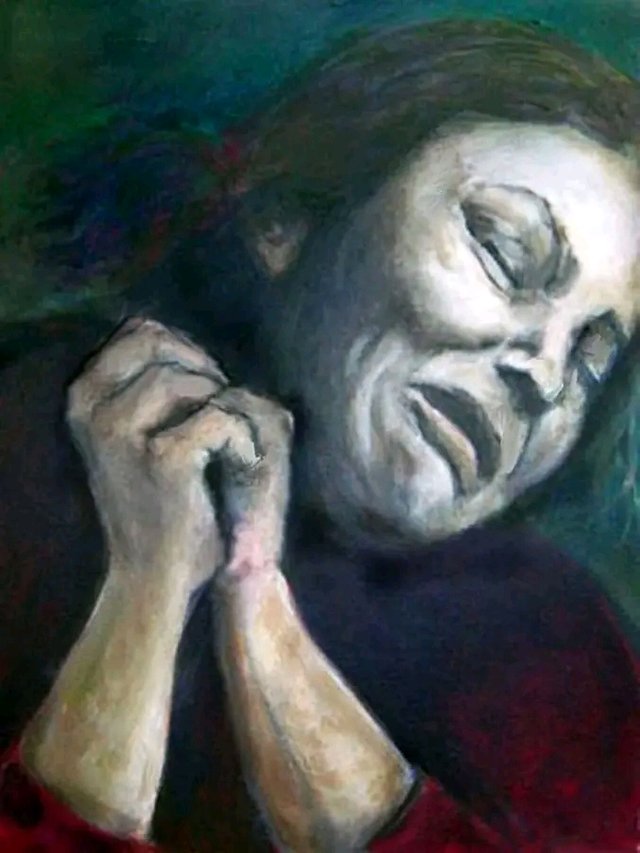What to do when you are grieving someone who is still alive:

What to do when you are grieving someone who is still alive:
- Remember that the present doesn’t override the past.
This can be easier said than done, but it is important to remember that the person your loved one is now doesn’t change the person they were. Even if their words or behaviors now are difficult or hurtful, even if your relationship has changed and is not what it was, this doesn’t change the person they were and the relationship you had. Cherish those positive memories, write them down, create a scrapbook of old photos, whatever you can.
- Understand that the illness isn’t the person.
This sounds obvious, but it can be really tough when someone you love seems like they should be the same wonderful person they always were, they’re not. Whether it is addiction, dementia, a brain injury, mental illness, or anything else, it is important to understand the illness. As much as we may still feel anger, frustration, or blame toward the person, understanding the illness can divert some of those feelings.
- Acknowledge the grief and pain of the loss.
Though society may not always recognize this type of grief, it is important that you give yourself permission to grieve this loss. Acknowledge and express the pain of the loss, rather than trying to ignore or avoid the pain.
- Be open to a new type of relationship.
When the person we love has changed, the relationship we have with them will inevitably change. This can feel like it is objectively and entirely a bad thing, but there is an opportunity for a new type of relationship. Will this new relationship always be easy? No. Hell no. In fact, many days it will be very very hard. But being open and seeking gratitude in your new relationship can be extremely helpful.
- Connect with others who can relate.
When many won’t relate to ambiguous loss, finding a support group can be of help. There are support groups out there for caregivers of those with dementia, groups like Al-anon and Nar-anon for family members of those with addiction, and groups like NAMI who offer groups for family of those with mental illness.
இன்னும் உயிருடன் இருக்கும் ஒருவரை நீங்கள் துக்கப்படுத்தினால் என்ன செய்வது:
- நிகழ்காலம் கடந்த காலத்தை மீறாது என்பதை நினைவில் கொள்ளுங்கள்.
இதைச் செய்வதை விட எளிதாகச் சொல்லலாம், ஆனால் உங்கள் அன்புக்குரியவர் இப்போது இருக்கும் நபரை மாற்றவில்லை என்பதை நினைவில் கொள்வது அவசியம். இப்போது அவர்களின் வார்த்தைகள் அல்லது நடத்தைகள் கடினமாகவோ அல்லது புண்படுத்துவதாகவோ இருந்தாலும், உங்கள் உறவு மாறியிருந்தாலும், அப்படி இல்லாவிட்டாலும், இது அவர்கள் இருந்த நபரையும் நீங்கள் கொண்டிருந்த உறவையும் மாற்றாது. அந்த நேர்மறையான நினைவுகளைப் போற்றுங்கள், அவற்றை எழுதுங்கள், பழைய புகைப்படங்களின் ஸ்கிராப்புக் ஒன்றை உருவாக்குங்கள்.
- நோய் நபர் அல்ல என்பதை புரிந்து கொள்ளுங்கள்.
இது வெளிப்படையாகத் தெரிகிறது, ஆனால் நீங்கள் விரும்பும் ஒருவர் அவர்கள் எப்போதும் இருந்த அதே அற்புதமான நபராக இருக்க வேண்டும் என்று தோன்றினால் அது மிகவும் கடினமாக இருக்கும், அவர்கள் இல்லை. போதைப் பழக்கம், டிமென்ஷியா, மூளைக் காயம், மனநோய் அல்லது வேறு எதுவாக இருந்தாலும் சரி, நோயைப் புரிந்துகொள்வது அவசியம். நாம் இன்னும் கோபம், விரக்தி அல்லது நபர் மீது பழியை உணரும் அளவுக்கு, நோயைப் புரிந்துகொள்வது அந்த உணர்வுகளில் சிலவற்றைத் திசைதிருப்பலாம்.
- இழப்பின் துக்கத்தையும் வலியையும் ஒப்புக்கொள்.
சமூகம் எப்போதும் இந்த வகையான துயரத்தை அங்கீகரிக்கவில்லை என்றாலும், இந்த இழப்பை துக்கப்படுத்த நீங்கள் அனுமதிப்பது முக்கியம். வலியை புறக்கணிக்க அல்லது தவிர்க்க முயற்சிப்பதை விட, இழப்பின் வலியை உணர்ந்து வெளிப்படுத்துங்கள்.
- ஒரு புதிய வகை உறவுக்கு திறந்திருங்கள்.
நாம் விரும்பும் நபர் மாறும்போது, அவர்களுடன் நாம் வைத்திருக்கும் உறவு தவிர்க்க முடியாமல் மாறும். இது புறநிலை மற்றும் முற்றிலும் மோசமான விஷயம் போல் உணரலாம், ஆனால் ஒரு புதிய வகை உறவுக்கான வாய்ப்பு உள்ளது. இந்த புதிய உறவு எப்போதும் எளிதாக இருக்குமா? இல்லை. நரகம் இல்லை. உண்மையில், பல நாட்கள் இது மிகவும் கடினமாக இருக்கும். ஆனால் உங்கள் புதிய உறவில் வெளிப்படையாக இருப்பது மற்றும் நன்றியைத் தேடுவது மிகவும் உதவியாக இருக்கும்.
- தொடர்பு கொள்ளக்கூடிய மற்றவர்களுடன் இணைக்கவும்.
பலர் தெளிவற்ற இழப்புடன் தொடர்புபடுத்தாதபோது, ஒரு ஆதரவு குழுவைக் கண்டுபிடிப்பது உதவியாக இருக்கும். டிமென்ஷியா உள்ளவர்களை பராமரிப்பவர்களுக்கு ஆதரவு குழுக்கள் உள்ளன, அல்-அனான் மற்றும் நார்-அனான் போன்ற குழுக்கள் போதை பழக்கம் உள்ளவர்களின் குடும்ப உறுப்பினர்களுக்கு மற்றும் NAMI போன்ற குழுக்கள் மனநலம் பாதிக்கப்பட்டவர்களின் குடும்பத்திற்கு குழுக்களை வழங்குகின்றன.